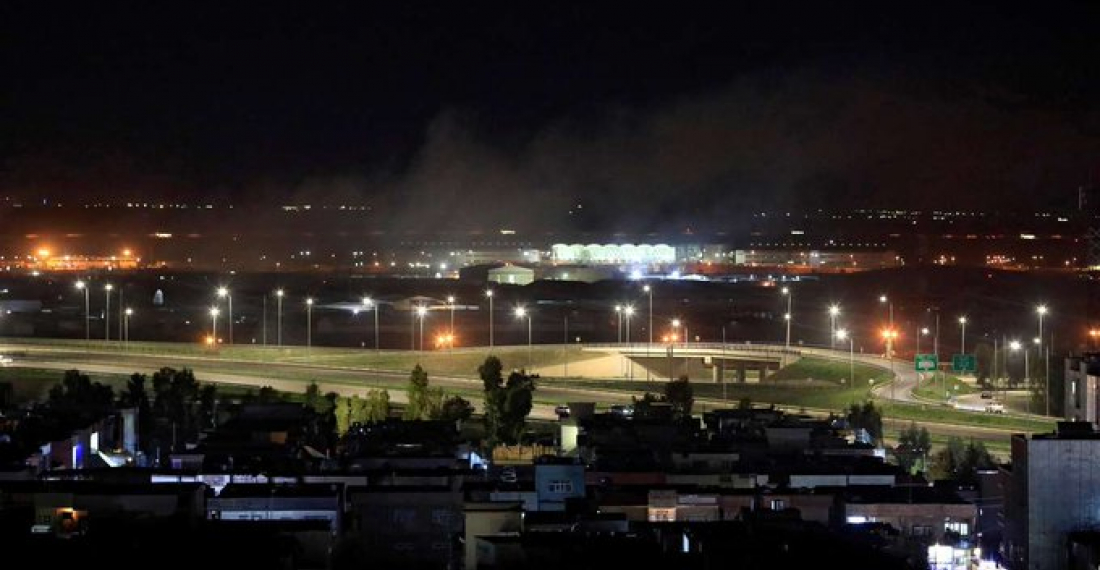The northern Iraqi city of Erbil, in the country's autonomous Kurdish region, faced a tense night after rockets struck the area between Erbil international airport and the nearby base hosting US troops on late Monday. The attack killed one contractor working with the US coalition and wounded at least eight other people, according to Iraqi and coalition officials.
Three rockets targeted the area with one successfully causing a fire while the two others were diverted by anti-missile systems.
The nationality of the dead contracted has not been announced, but US coalition spokesperson, Col. Wayne Marotto, said that an investigation was underway. The rockets have also damaged cars and other property.
Iraqi President Barham Saleh condemned the attack, describing it as a "dangerous escalation."
Saleh said that "There is no choice but to strengthen efforts to root out the forces of terror and attempts to plunge the country into chaos."
Iraqi Prime Minister Mustafa Al-Kadhemi directed the formation of a joint investigation committee with the authorities of the Kurdistan region to determine the party that launched the attack.
In turn, the President of the Iraqi Kurdistan government, Masrour Barzani, condemned the attack "in the strongest terms."
He said that he had reached out to Iraqi Prime Minister, Al-Kadhemi, in order for security forces in Erbil and Baghdad to cooperate in the investigation.
US Secretary of State Antony Blinken promised to "hold accountable those responsible,"
"We express our condolences to the loved ones of the civilian contractor killed in this attack, and to the innocent Iraqi people and their families who are suffering these ruthless acts of violence," Blinken said in a statement.
The United Nations Iraq envoy Jeanine Hennis condemned the attacks via a Tweet.
We deplore the deadly rocket attack on Erbil. Such heinous, reckless acts pose grave threats to stability. Iraq must be shielded from (external) rivalries. We call for restraint and for close Baghdad-Erbil collaboration to bring culprits to justice.
— Jeanine Hennis (@JeanineHennis) February 16, 2021
A group calling itself Saraya Awliya Al Dam has reportedly claimed responsibility for attacks but the claim has not been immediately verified. It is unclear if the group has ties to any other entity. Kurdish intelligence later found that the attacks were launched from south of Erbil using Iranian Fajr 1 rockets. However, Iraq's Popular Mobilisation Forces have denied responsibility for the attacks.
Attacks in Kurdistan are rare as recent attacks have targeted Baghdad and nearby areas. Former President Trump had said the death of a US contractor would be a red line and provoke U.S. escalation in Iraq.






